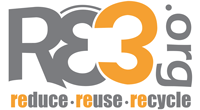 Guest Blogger - By Adrienne Outcalt, RePaper
Guest Blogger - By Adrienne Outcalt, RePaper In the past, government purchasers, environmentalists and major corporate paper buyers collaborated to drive up recycled content and stimulate the development of more recycled papers by specifying higher post-consumer minimums. But that strategy is no longer sufficient because we are close to the limits of the current capacity for producing the deinked (recycled from pre- and post-consumer) pulp necessary for making recycled office/printing paper. The few high-grade deinking mills left in the U.S. are now running near maximum capacity, meaning that increases in recycled content will require investments in new capacity or expansions of existing capacity.
It seems like a lot to take in, but there are many ways you can directly make an impact. If you work in an office or school or university that doesn’t have a recycling program, talk to someone about starting one. Increasing paper recovery is the easiest and most feasible way to make an impact and push the U.S. paper industry in a more sustainable direction. Appropriate recycling options vary according to geographic regions, climate, demographics, collection programs and available markets, so check out what your municipality offers. If your office/school/university already has a recycling program, check out their purchasing policy to make sure that sustainable paper is being used. See what other environmental initiatives exist-how could they be taken to the next level?
Remember, your involvement is important. More collaboration between recycling sectors and greater agreement on the system’s conceptual framework could tie the collection programs more faithfully to the production processes, thus creating more reliable and comprehensive recycling. Achieving this may be just the key to building, once again, a thriving paper industry renewal on recycled content.
*The main ideas in this blog were captured from a Resource Recycling article written by Susan Kinsella of Conservatree and Pam Blackledge of the RePaper Project. More information on RePaper can be found by visiting their Web site.

1 comment:
These are great information about the various ways to enhance our recycling programs. These facts are surely helpful to a lot of communities in making their programs more effective. Thanks for sharing.
Post a Comment